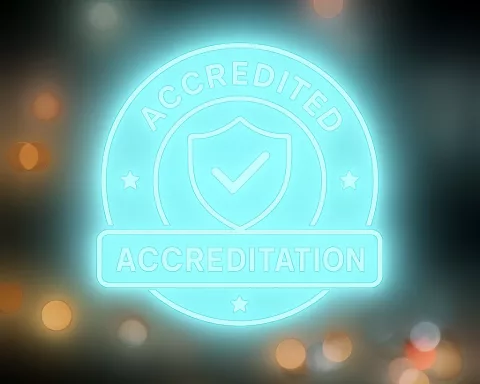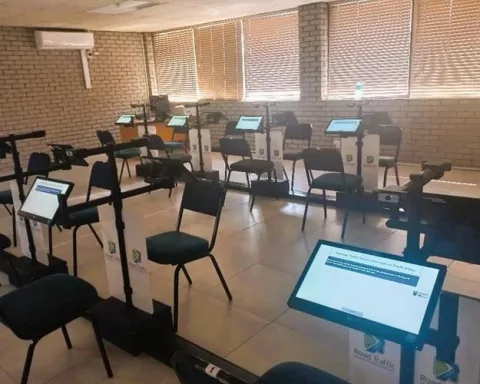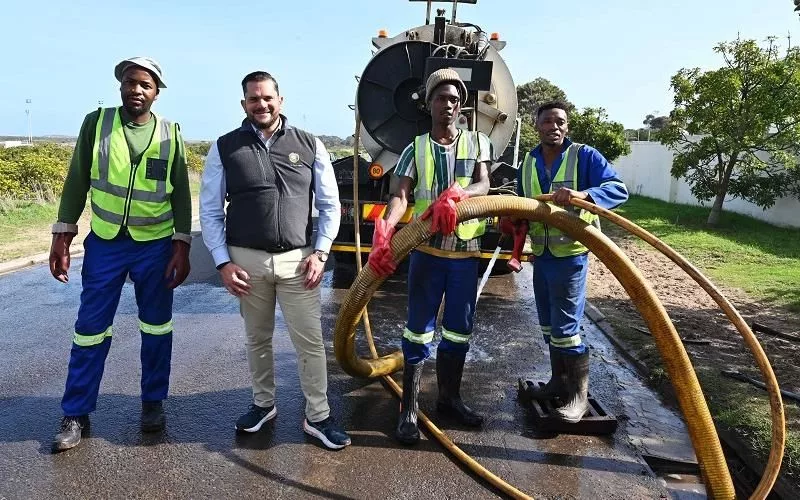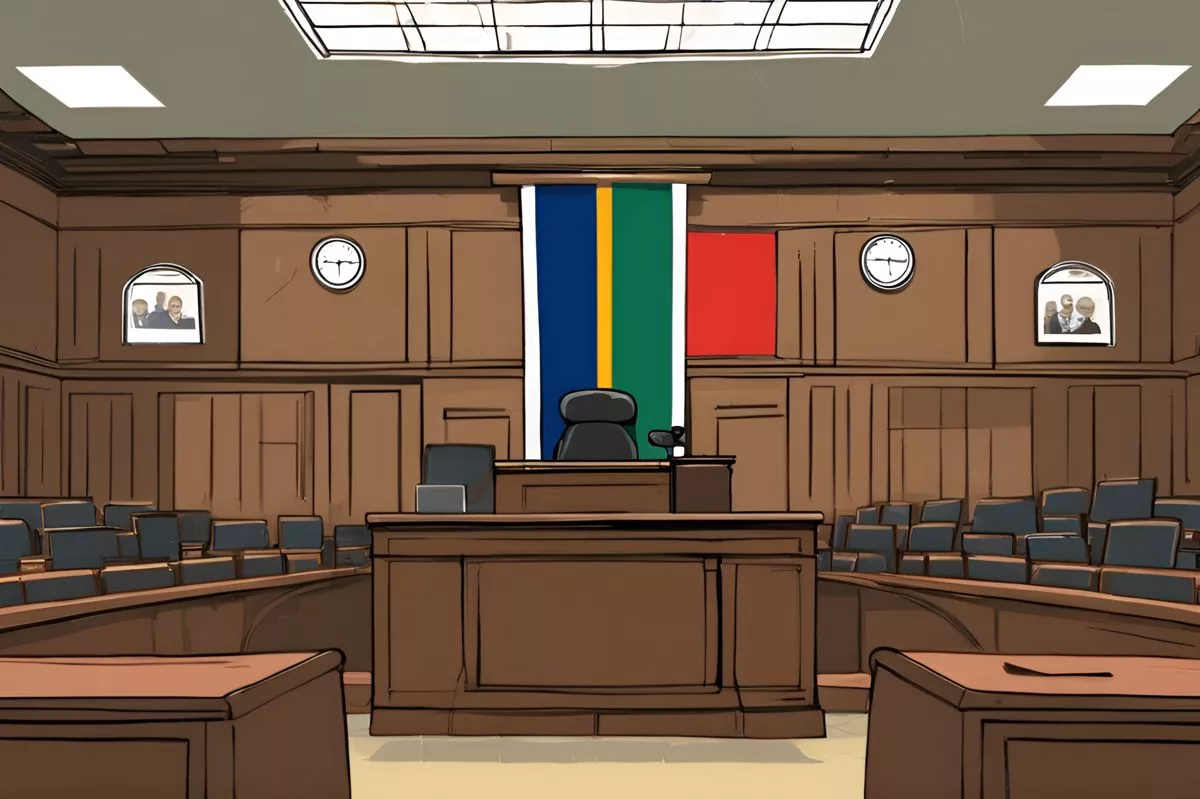The trial of Nafiz Modack and his companions in the Western Cape High Court involves a location-tracking platform used to monitor the movements of individuals, including law enforcement officers. Tech tycoon Larry Hurwitz provided revealing testimony on the software’s intricate workings, leading to debates on the ethical and legal limitations of surveillance technology. The trial sheds light on the interplay between technology, crime, and law enforcement, and the potential for abuse of surveillance tools.
Unraveling the Intricacies: Tech, Crime, and the Courtroom
Courtroom Drama Unfolds
The ongoing trial involving Nafiz Modack and his companions sheds light on the intricate operations of a location-tracking platform used to keep tabs on the movements of various people, including Anti-Gang Unit detective Charl Kinnear. Larry Hurwitz, a tech tycoon, provided revealing testimony on the software’s intricate workings, central to the case.
Questioning the Ethical and Legal Boundaries
Although the platform was primarily designed for law enforcement agencies, its application in this case instigates debates regarding the ethical and legal limitations of surveillance technology. The later stages of the trial are expected to address how the location-tracking platform was accessed and if it conformed to legal regulations.
Courtroom Drama Unfolds
The Western Cape High Court is currently a stage for a captivating legal drama, where elements of crime, technology, and justice intersect. The protagonists of this narrative are Nafiz Modack and his companions, standing trial for crimes of murder and racketeering. The hallmarked testimony from Larry Hurwitz, a tech tycoon known for his contentious location-tracking platform used by Modack, was delivered from the United States this Tuesday. His revealing insights into the software, central to the case, laid bare the intricate operations of the platform that was reportedly used to keep tabs on the movements of various people prior to their targeted encounters, among them Anti-Gang Unit detective Charl Kinnear.
Born in South Africa, Hurwitz is an entrepreneurial spirit and co-founder of the My911 service, a platform initially developed for emergency responders. His subsequent venture, the 3DT Group, saw him develop a software pivotal to the ‘pinging’ system. Interestingly, this digital platform found utilization beyond emergency responses. The ongoing trial has shed light on its employment in tracking activities of prominent individuals in the Cape Town business circuit, such as alleged Sexy Boys gang leader and property mogul Jerome Booysen, co-owner of a service station Ralph Stanfield, and security firm owner Andre Naude.
Delving into the Network of Operations
The trial revealed a convoluted operational network involving Zane Kilian, co-defendant with Modack, ex-police officer Bradley Goldblatt, and two mobile network behemoths – MTN and Vodacom. Kilian, it was disclosed, employed the pinging service offered by Goldblatt, via Hurwitz’s location-tracking platform. He bought pinging packages and platform credentials from Goldblatt, maintaining that he thought he was legitimately tracing locations for debt collection on behalf of Modack.
Hurwitz’s technology, equipped with data from MTN and Vodacom, allowed its users to enter a mobile number and locate the corresponding device. The system produced longitude and latitude coordinates based on the mobile tower connection, converting them into real-world addresses. The accuracy of the system hinged on the concentration of mobile towers – in suburban or CBD locations with more towers, the system could pinpoint a device within a 20-meter radius, while in rural locations with fewer towers, this accuracy dropped to within a 600-meter radius.
Questioning the Ethical and Legal Boundaries
Hurwitz’s testimony unveiled more than just the technical workings of the tracking system. It underscored the possible exploitation of such technologies for unlawful purposes. Although the platform was primarily designed for law enforcement agencies, its application in this case instigates debates regarding the ethical and legal limitations of surveillance technology. The later stages of the trial are expected to address how the location-tracking platform was accessed and if it conformed to legal regulations.
Despite the disconcerting revelations and allegations, it’s crucial to acknowledge that the tracking platform’s misuse was perpetrated by individuals with a particular, illegal agenda. The platform, the mobile network companies, and the original technology creators are all victims, entangled in a snare set by those who opted to use the system for underhanded tracking.
Looking Forward
As the trial progresses, more specifics will come to light regarding the actions and intentions of the people involved. Warrant Officer Calvin Shunmugan from Durban is expected to continue his testimony regarding his part in a police raid targeting an individual marked for debt collection by Modack and his co-defendant, Jacques Cronje.
This trial is more than just an examination of individuals; it’s also an analysis of the technology at the heart of the case. It serves as a sobering reminder of the ethical dilemmas surrounding surveillance tools and their potential for abuse. It attests to the intricate interplay between technology, crime, and law enforcement. As the trial unfolds, we anticipate gaining a clearer understanding of the usage and exploitation of the contentious tracking platform.
What is the ongoing trial involving Nafiz Modack and his companions about?
Nafiz Modack and his companions are standing trial for crimes of murder and racketeering.
Who is Larry Hurwitz and what was his involvement in the trial?
Larry Hurwitz is a tech tycoon known for his location-tracking platform, which was reportedly used by Modack. He provided revealing testimony on the software’s intricate workings, central to the case.
What are the debates regarding the ethical and legal limitations of surveillance technology?
The application of the location-tracking platform in this case instigates debates regarding the ethical and legal limitations of surveillance technology.
What is Hurwitz’s location-tracking platform?
Hurwitz’s technology, equipped with data from MTN and Vodacom, allowed its users to enter a mobile number and locate the corresponding device. The system produced longitude and latitude coordinates based on the mobile tower connection, converting them into real-world addresses.
What are the possible ethical dilemmas surrounding surveillance tools?
The trial sheds light on the potential for abuse of surveillance tools and the ethical dilemmas surrounding their usage.
What can we expect as the trial progresses?
As the trial progresses, we anticipate gaining a clearer understanding of the usage and exploitation of the contentious tracking platform. Further information will come to light regarding the actions and intentions of the people involved.












